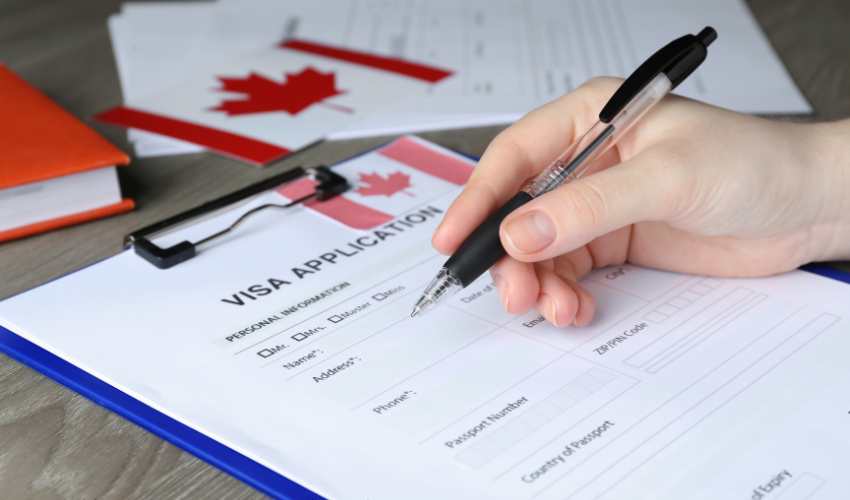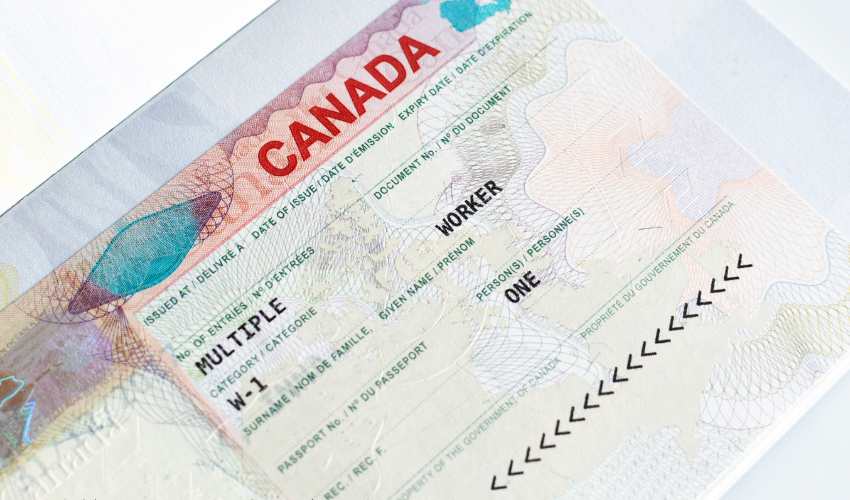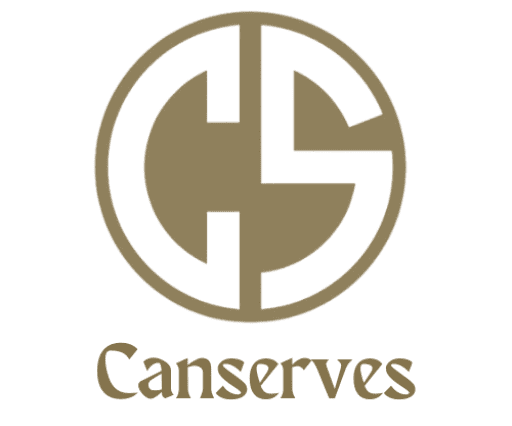The Canada Visa Application online comprises various stages, and the process can vary depending on the specific visa category and your current place of residence. A general outline of the procedure is presented below, but it is essential to verify the latest and accurate details on the Immigration, Refugees, and Citizenship Canada (IRCC) website before proceeding. The following outlines the steps for visa application:
1. Determine the type of visa

Canada offers a range of visas catering to diverse purposes, such as tourism, work, study, and immigration. Individuals seeking to visit have the option to apply for various permits based on the nature of their visit and the desired duration of stay. Each type of permit has specific eligibility requirements and criteria. Below are examples of well-known visas or permits designed for short-term stays:
A. Visitor Visa (TRV)
Holders of this permit may travel to Canada for pleasure, to see family or friends, or to do business. It is frequently provided to stay for less than six months to:
- Visit as a Tourist to explore its beauty (Visitor Visa)
- Visit Family (Spouse, brother, sister, parent or children)
- Support, care or have the funeral or end-of-life ceremony
- Visit on business (Canada Business Visitor Visa)
- Attend a meeting, conference, or trade show (Canada Conference Visa)
B. Temporary Resident Permit (TRP)
You can apply for a Temporary Resident Permit (TRP) to be granted entrance for a particular purpose and duration if you are otherwise ineligible due to criminal convictions or medical conditions.
C. Super Visa
With the help of Super Visa, parents and grandparents of Canadian citizens or permanent residents can travel to Canada for up to two years without renewing their permits.
D. Transit Visa
Depending on your nationality, you could require a transit permit if you’re traveling via Canada to another country.
E. Provincial Nominee Program (PNP) Work Permit
Applying for a work permit particular to a nomination under the PNP of a Canadian province or territory is possible.
F. Study Visa (Canada Study Permit)
To enroll in designated Canadian educational institutions (DLIs), like universities, colleges, or other educational programs, obtaining a study permit is necessary. Before applying for this permit, it is a prerequisite to have obtained an admission letter from the university.
E. Work Visa (Canada Work Permit)
A work permit allows individuals to work legally in Canada. Generally, obtaining a work permit necessitates a job offer from a Canadian company authorized by Employment and Social Development (ESDC) or the Temporary Foreign Worker Program (TFWP). Prior to hiring foreign workers, companies must demonstrate, via a Labor Market Impact Assessment (LMIA), that there are no available Canadian citizens or permanent residents to fill the vacant positions.
G. International Mobility Program in Canada (IMP) Work Visa
For Canadian businesses engaging foreign employees through the International Mobility Program (IMP), a Labour Market Impact Assessment (LMIA) is not a mandatory requirement. The IMP, a government initiative, streamlines the process for hiring foreign workers, reducing the administrative complexity associated with LMIA procedures. This program aims to stimulate economic growth and enhance the Canadian workforce. The IMP encompasses various work permits, including those granted under international agreements, job exchanges, and more. Within the IMP, there are multiple streams and categories for obtaining work permits, such as:
Intra Company Transfer Canada
Employees of a foreign corporation may transfer to a Canadian branch or subsidiary to carry out their jobs through intra-company transfers (ICT work permits).
C11 work permit
It is offered to international business owners and investors who want to operate a business in Canada as self-employed persons
International Experience Canada (IEC)
The International Experience Canada (IEC) program, providing opportunities for young individuals from specific countries to work and visit Canada through categories like Working Holiday, Young Professionals, and International Co-op (Internship), is akin to the working holiday permit.
NAFTA (North American Free Trade Agreement) Work Permits
For professionals, dealers, and investors from the United States and Mexico, NAFTA work permits are available.
Global Talent Stream
This programme makes hiring highly qualified overseas workers for particular jobs easier.
Researchers, Academics, and Postdoctoral Fellows
Permits people to enter Canada to work in research, academia, or postdoctoral fellowships.
Significant Benefit Work Permits
These permits are given out under agreements for things like academic exchanges, charity or religious work.
H. Permanent Resident Visas
For individuals seeking permanent relocation through programs such as Express Entry or other immigration permanent residency programs, the IRCC issues a visa for their initial landing along with the confirmation of their permanent residency (COPR).
Prior to initiating the application process, selecting the appropriate permit type for your intended visit is vital. For precise and up-to-date information, it is recommended to visit the official IRCC website or seek advice from a knowledgeable immigration counselor. Eligibility criteria, processing timelines, and application procedures may vary for each permit category. Opt for the visa category that aligns best with your travel objectives.

2. Check eligibility
Ensure your eligibility for the chosen visa category. Each permit category has specific requirements for qualification. Thoroughly review these requirements to determine if you meet the criteria. Typical specifications include:
- Having a valid passport,
- Demonstrating enough funds to support yourself during your stay,
- Showing family, business, professional, social and community ties to your home country will require you to return after your authorized stay.
3. Gather required documents
Prepare all the required paperwork under your chosen visa type. Typical paperwork includes:
- A valid passport for at least six months beyond the anticipated stay.
- Photos the size of a passport are acceptable.
- Signed and completed application forms.
- Proof of finances (bank statements, salary stubs, etc.) to cover your costs.
- Letters of invitation or other documentation supporting your visit’s objectives.
- Academic records and letters of approval for study permits.
- Offers of employment or labour market impact analyses (LMIA) for work permits.
- Certificates of police clearance and, if necessary, the findings of a medical assessment.
4. Canada Visa Application Online
In contemporary times, the majority of Canada Visa Application Online through the IRCC website. Establish an account, select the appropriate permit category, and accurately fill out the application form. When providing information, ensure it is detailed and genuine.
5. Pay the application fee
Visa applications usually involve a processing fee, the amount of which depends on the type of visa. It is important to adhere to the payment instructions provided on the IRCC website to ensure the correct fee is paid. Stay informed about the latest fees and available payment options by visiting the IRCC website.
6. Biometrics appointment
Biometrics, including fingerprints and photographs, may be requested in certain situations. If the IRCC notifies you of this requirement, you must schedule an appointment at the nearest Visa Application Centre (VAC) or Application Support Centre (ASC) to provide your biometrics.
7. Medical examination and police clearance (if required)
Depending on your permit type and country of residency, you might need to undergo a physical examination conducted by a designated doctor and obtain police clearance certificates from the countries where you have resided for a specific duration.
8. Attend an interview (if necessary)
Certain applicants may be asked to participate in an interview at the Canadian embassy or consulate. The purpose of the interview is to assess the applicant’s reasons for coming to Canada and the sincerity of their application.
9. Selection Factors
The decision-making process, depending on the program, may take into account various selection factors. These factors include language proficiency, educational background, professional experience, and, in certain cases, job offers.
10. Evaluation Process
Immigration visa authorities review applications and accompanying documents to ascertain if a candidate meets eligibility criteria. This process may encompass the examination of document legality, accuracy of information, and adherence to immigration regulations.
11. Wait for a decision
Be patient while you wait for a response since the processing period for Canada Visa Application Online varies based on the kind of permit and your country of residency.
The processing time for visa applications can vary from a few weeks to several months. Projected processing time frames are accessible on the IRCC website. Online application status checks are also available.
12. Canada visa application approval or refusal
Upon acceptance of your visa application, you will receive a Port of Entry (POE) Letter of Introduction or a passport stamp, depending on the type of visa applied for. In the event of application rejection, the rejection letter will provide the reasons, and you have the option to either appeal the decision or submit a new application.
Always refer to the official IRCC website for the latest information, as the procedure may vary significantly based on your permit type. If you have specific concerns or inquiries during the application process, seeking advice from a knowledgeable immigration consultant or attorney is also a prudent idea.
Before initiating a visa application, it is vital to thoroughly read and understand the prerequisites and instructions provided on the official IRCC website. Keeping abreast of the latest information is crucial for a successful application, as immigration regulations and processes may undergo changes.
How Can Canserves Help With Canada Visa Application?
At Canserves, we aid you in determining the optimal approach to secure a Temporary Resident Visa (TRV) or Permanent Residency (PR) Visa to meet your immigration goals. Our services encompass everything, from completing immigration forms to assisting with the preparation of supporting documentation. To enhance your chances of approval, we provide expert guidance on the necessary personalized supporting documents. Additionally, as your authorized representative, we can submit your application to IRCC on your behalf.
